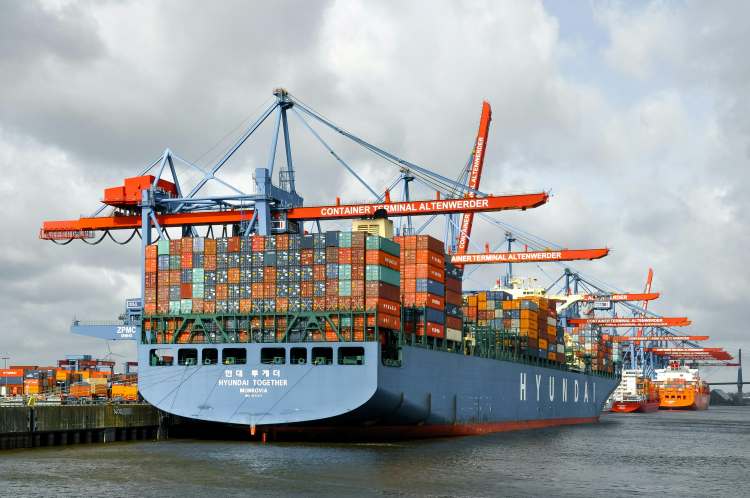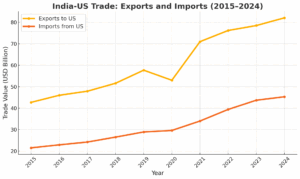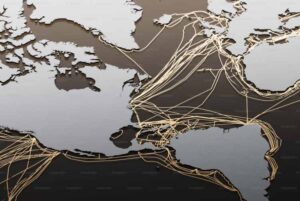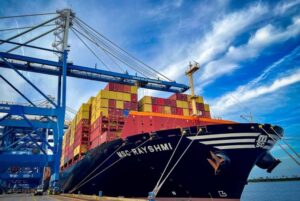
The United States’ latest decision to impose additional tariffs on Indian exports will disrupt the flow of trade between the two countries. Indian exporters, unable to fully absorb the added costs of US tariffs, will be forced to raise prices, hurting competitiveness. This, in turn, will dampen bilateral trade volumes. But the greater damage may be intangible — a breakdown of trust between businesses, policymakers, and governments on both sides.
When tariffs become unpredictable in timing and size, they signal a departure from rules-based trade. Such uncertainty nudges countries toward forming trading blocs, moving away from multilateral frameworks that promote global welfare through efficient resource allocation.
READ I Trump’s 25% tariff on India tests trade deal hopes
Targeted sectors, limited exemptions
The new US tariffs are expected to impact a broad spectrum of Indian exports — notably electronics, gems and jewellery, machinery, textiles, and auto components. Pharmaceuticals and energy products have been spared, at least for now.

The repercussions of the new US tariffs may extend beyond trade. Multinational firms, including those moving production to India — such as Apple — might reassess their strategies. That said, most investment decisions are based on long-term fundamentals. India continues to offer strong advantages: a large, young workforce; a deep pool of skilled, low-cost, English-speaking professionals; and a growing domestic market. These attributes are difficult to replicate elsewhere.
In the medium term, India is unlikely to see a reversal of interest from global firms. The tariff shock may temporarily hurt export-linked MSMEs, but when viewed sector by sector, the macroeconomic impact is likely to be modest.
A domestic fix with global consequences
The US faces a worsening fiscal situation, a persistent trade deficit, and a rising debt-to-GDP ratio. It is responding by reconfiguring trade ties on a bilateral basis, seeking more favourable terms through direct pressure. But tariffs are a blunt instrument.

They raise input costs for American firms and prices for consumers. Even the US Federal Reserve has acknowledged that the effects of the ongoing tariff war are beginning to feed into inflation, though the full impact remains uncertain. Ironically, the very measures designed to correct trade imbalances risk weakening the US economy in the process.
Global leadership and responsibility
As the world’s largest economy — contributing a quarter of global GDP — and the issuer of the world’s primary reserve currency, the US enjoys immense privileges. These come with responsibilities.
Picking a tariff fight with India, a democratic partner and emerging power committed to stable growth and regional balance, is a poor use of its global leverage. The US, built on the contributions of immigrants and global talent, has long claimed moral leadership. In that light, targeting an ally that shares its democratic values sends the wrong signal.
Cost of US tariffs
The so-called sacrifice ratio — growth lost due to tariffs and related uncertainty — is already high. Emerging economies like India suffer disproportionately, especially when faced with a Federal Reserve unwilling to ease interest rates and a US administration determined to weaponise trade.

After enduring COVID-19, supply chain disruptions, and the lingering effects of the 2008 financial crisis, the global economy needs more cooperation, not confrontation. The US must act with greater foresight and a sense of collective responsibility.
India must diversify and de-risk
India cannot afford to remain vulnerable to policy shifts in any one country, even the US. It must broaden its export base, especially across the Global South — a priority during its G20 presidency. Initiatives like Operation Sindoor, which saw Indian delegations engage with 32 nations, must be followed up with deeper trade integration.
At the same time, India’s own hinterland offers untapped opportunities. Rising rural prosperity is generating new demand for consumer goods and industrial products alike. Redirecting export efforts toward these domestic growth centres can help cushion external shocks.
India must defend its national interest as assertively as the US does. That means crafting trade policies that protect employment and ensure continued growth without retreating into protectionism. The response to tariff aggression need not mirror it — diversification, domestic market development, and stronger South-South linkages are smarter, long-term bets.
The US tariffs may slow trade, but it need not derail India’s growth story.
Dr Charan Sigh is a Delhi-based economist. He is the chief executive of EGROW Foundation, a Noida-based think tank, and former Non Executive Chairman of Punjab & Sind Bank. He has served as RBI Chair professor at the Indian Institute of Management, Bangalore.

